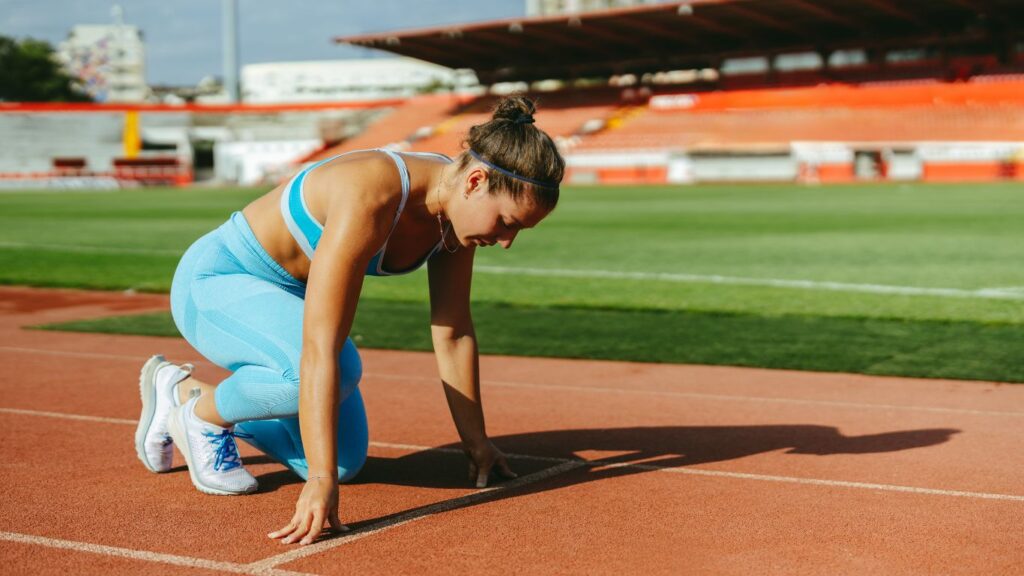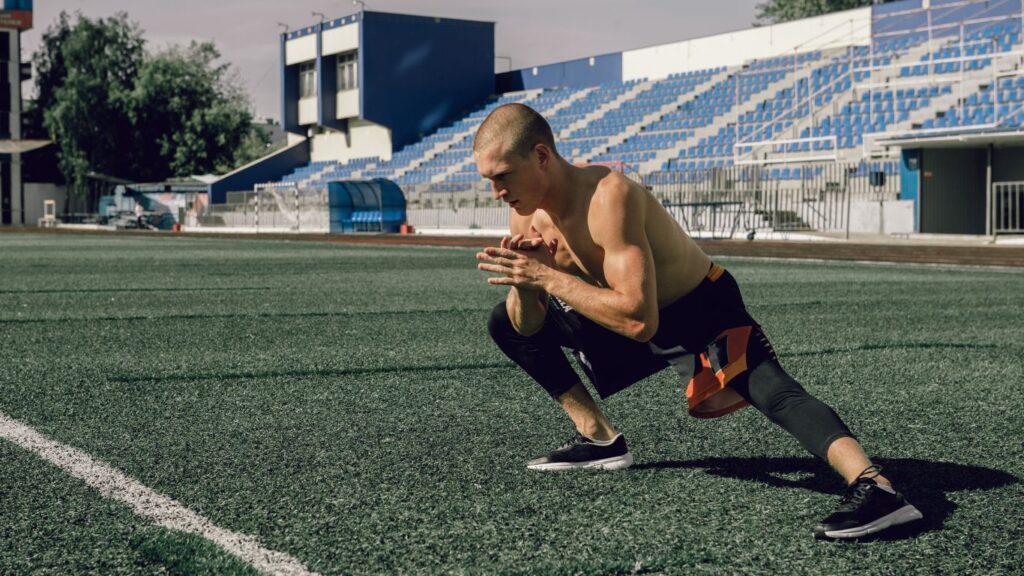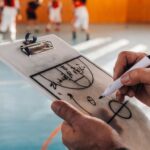In the sprawling landscape of fitness philosophies, one gold standard remains constant – the training ethos of elite athletes. Their dedication, routines, and relentless pursuit of excellence serve as beacons for anyone striving to reach peak performance. Whether you’re a budding athlete or simply seeking a fitness regimen that delivers results, the pros’ methods can offer valuable insights. This guide is your gateway to unlocking the training secrets that power the world’s most extraordinary athletic performances.

Understanding the Athlete’s Mindset
Training like an athlete goes beyond the physical routines; it’s a mental ethos that champions discipline, perseverance, and strategic thought. Athletes view training not as a chore but a privilege, pressing their mental boundaries to achieve feats that test human potential.
“Elite athletes exemplify an unwavering mindset,” says Dr. Amanda Chase, a sports psychologist. They focus on goals with single-minded determination, employ visualization techniques, and develop mental resilience to overcome setbacks.”
The Foundation of Athletic Training
Elite training begins with establishing a robust foundation. Such programs integrate strength, conditioning, speed, and agility work meticulously and with specific intent. Functional strength, the bedrock of athlete training, focuses on movements that build strength relevant to daily activities and sports performance.
Strength and conditioning coach Marcus Lang suggests, “It’s about training movements, not muscles. Compound exercises like squats, deadlifts, and bench presses should form the core of your program, offering superior gains in muscle and power.”

Tailoring Nutrition for Athletic Demands
Nutrition is the often overlooked but critical component of elite training. Athletes fuel their bodies with precision, understanding that each nutrient plays a vital role in performance, recovery, and injury prevention.
Sarah Green, registered dietitian, emphasizes, “Balancing macros, timing meals, and optimizing nutrient intake is key. Athletes often eat several small meals throughout the day, ensuring a steady supply of energy and nutrients, especially in lean proteins, complex carbohydrates, and healthy fats.”
Integrating Rest for Optimal Recovery
Elite training schedules are as much about recovery as they are about pushing boundaries. Adequate rest is when the body repairs, adapts and grows stronger. Sleep is paramount, with athletes often targeting 8–10 hours a night. Other recovery methods include massage therapy, foam rolling, and contrast baths.
Physical therapist Dr. Michael Evans advises, “Incorporating rest days into your schedule is non-negotiable. These days, your body adapts to the training stimulus, avoiding burnout and overtraining syndromes.”
Specialized Training and Periodization
Elite athletes follow a periodization model, manipulating training variables throughout the year to optimize performance during the competitive season. The off-season focuses on building a foundation, the pre-season hones specific skills, and the in-season aims at peaking performance.
Lang shares, “Each phase incorporates different exercise intensities and volumes to achieve peak conditions on competition day. It’s a strategic approach that ensures training progression while minimizing the risk of overuse injuries.”
The Role of Cross-Training
Over-specialization can lead to imbalances and potential injuries. Athletes frequently engage in cross-training, supplementing their primary sport with activities like swimming, cycling, or yoga, which develop neglected muscle groups and improve overall fitness.
Green adds, “Cross-training also provides a mental break, keeping workouts fresh and enjoyable. It’s an effective way to continue training while giving primary sport-specific muscles time to recover.”

Drilling the Fundamentals and Technique
Mastering the basics is a primary focus for elite athletes. They understand that sound technique prevents injuries and improves efficiency, leading to better performance.
Sarah Richards, a biomechanics coach, explains, “Devote specific training sessions to work on form and technique. Video analysis and working with a coach can provide insights on where you can make improvements.”
Leveraging Technology in Training
Today’s athletes have a suite of Technology, from heart rate monitors to wearable tech. These tools provide real-time data on performance, heart rate variability, and sleep quality, allowing for precise adjustments to training protocols.
Dr. Evans says, “Technology is a game-changer. It helps athletes and coaches understand the body’s response to training loads, facilitating recovery and workload management.”
Setting Realistic Goals and Monitoring Progress
Elite athletes set specific, measurable, achievable, relevant, and time-bound (SMART) goals to guide their training. Regular progress checks keep them motivated and on track.
Chase advises, “Ensure your goals are both challenging and achievable within a set timeframe. Celebrate the small wins along the way, and adjust your plan if needed based on your progress.”
Mental Conditioning for Resilience
Elite athletes are distinguished by their ability to overcome physical pain and mental barriers. Mental conditioning, often through sports psychology, equips athletes with strategies for staying focused and performing under pressure.
“Mindfulness, positive self-talk, routines, and mental imagery are techniques that can be learned and practised,” says Dr Chase. “They cultivate a strong and resilient mind, which can often be the competitive edge.”
Engaging in Competitive Drills and Simulated Scenarios
Lastly, competitive drills and scenario simulations prepare athletes physically and mentally for the rigours of competition. It’s the closest they can get to the real thing, providing invaluable experience and reducing the likelihood of being caught off-guard during a game or event.
Coach Lang concludes, “By repeatedly putting yourself in competition-like situations, the pressure and the specific skills required become second nature. Your training shapes your body and your mind’s readiness for the challenge.
Frequently Asked Questions
1. How important is the mental aspect of training like an elite athlete?
– The mental aspect is crucial, as elite athletes focus on discipline, perseverance, and strategic thinking to achieve peak performance.
2. What is the foundation of athletic training?
– Athletic training begins with establishing a robust foundation that integrates strength, conditioning, speed, and agility work with specific intent.
3. Why is nutrition a critical component of elite training?
– Nutrition plays a vital role in performance, recovery, and injury prevention for athletes by fueling their bodies precisely.
4. How important is rest in an elite athlete’s training schedule?
Rest is essential for optimal recovery and growth; athletes prioritize sleep and incorporate various methods, such as massage therapy and foam rolling.
5. What is periodization in elite athlete training?
Periodization involves manipulating training variables throughout the year to optimize performance during different phases, such as the off-season, pre-season, and in-season.
6. Why do elite athletes engage in cross-training?
– Cross-training helps prevent imbalances and injuries by developing neglected muscle groups while providing a mental break from primary sport-specific workouts.
7. How can Technology enhance an athlete’s training regimen?
– Technology tools like heart rate monitors provide real-time data on performance metrics to help athletes make precise adjustments to their training protocols.
8. What role does setting goals play in training like an elite athlete?
– Setting SMART goals helps athletes monitor progress, stay motivated, and adjust their plans accordingly based on their achievements within a set timeframe.
Conclusion
Training like an elite athlete entails adopting a holistic approach that integrates physical preparation, mental fortitude, and strategic training principles. It’s not about replicating professional athlete schedules but understanding and implementing their foundational training philosophies into your regimen. Whether aiming for a podium finish or seeking a new fitness level, incorporating these athlete-approved strategies can elevate your performance and unlock your true potential.









